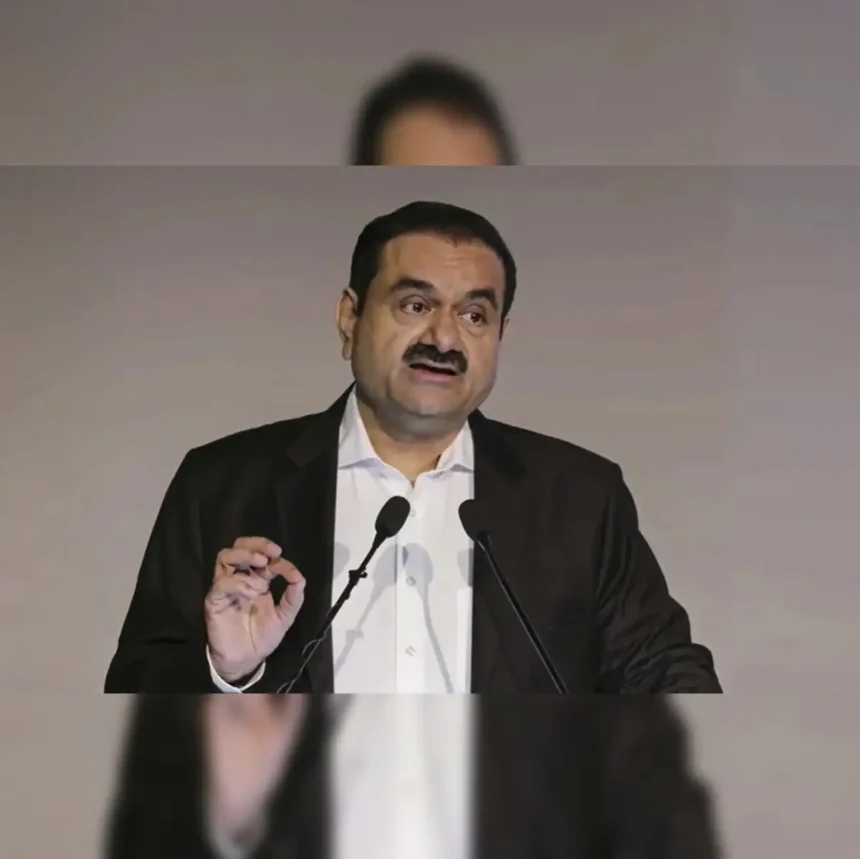Delhi Court Grants Ex-Parte Interim Relief in Adani Defamation Case Against Journalists
New Delhi: A Delhi district court has issued an ex parte interim order directing a number of journalists and activists to remove articles and social media posts allegedly defaming Adani Enterprises and to not publish such material against the firm till the next hearing.
An ex parte order is said to be issued when some parties to a case are not heard, which in this case comprise ten defendants, among whom are journalists Paranjoy Guha Thakurta, Ravi Nair, Abir Dasgupta, Ayaskant Das and Ayush Joshi.
Senior civil judge Anuj Kumar Singh of the North West Delhi district court noted in his order dated Saturday (September 6) that Adani Enterprises accused “certain reporters, activists and organisations” of maliciously damaging its parent conglomerate’s reputation, costing its stakeholders billions of dollars as well as dealing a “massive loss to the image, brand equity and credibility of India’s brand as a country”.
The defendants in the case, per Adani, were “aligning with anti-India interests” and disrupting its energy and infrastructure projects “with ulterior motives”.
In trying to spoil Adani’s reputation the defendants specifically and repeatedly relied on Hindenburg Research’s 2023 report on the conglomerate, the counsel for Adani Enterprises argued.
Hindenburg, which was a short-selling investment firm, had accused the Adani Group of “brazen stock manipulation”, an “accounting fraud scheme” and pulling the “largest con in corporate history” – a charge that the conglomerate has denied.
Adani named three websites run by the defendants as publishing allegedly defamatory content – various examples of which the court recalled the firm had listed in its suit filed on Thursday – and sharing them on social media.
It sought an ex parte interim injunction on the grounds that “defamatory articles/tweets may possibly be circulated/shared/re-tweeted causing further loss of reputation to the plaintiff [Adani]”.
Having heard the firm’s arguments, the court concluded that the case passed the three-fold test for issuing ex parte interim orders, which is that it contain a prima facie case in the plaintiff’s favour, that the “balance of convenience” is in the plaintiff’s favour and that irreparable injury would be caused to the plaintiff if such an order is not issued.
However, considering that the constitution guarantees the freedom of speech, judge Singh said he would not issue a blanket order stopping the defendants from conducting “fair, verified and substantiated reporting”.
“… It would suffice the interest of justice to restrain defendants … from publishing/distributing/circulating unverified, unsubstantiated and ex-facie defamatory reports about the plaintiff allegedly tarnishing the reputation of the plaintiff till the next date of hearing,” the judge ruled.
Simultaneously the defendants must remove such material from their articles or posts “to the extent that [they] are incorrect and unverified and prima facie defamatory”.
Responding to the court’s order, Thakurta said in a statement that this was the seventh defamation suit filed against him by the Adani group for his reporting, and he is contesting all of them. He has stood by his journalism and said that reports citing the Adani group’s lawyers allegations are “false, unfounded, and scurrilous, and have been made without granting me a right of response”. “I stand by my reporting which is verified, factual, fair, balanced, unbiased, and conducted without fear or favour,” he continues.
“I have full faith in the judiciary of India and remain confident that all the articles that I have authored or co-authored and all the statements that I have made are not just truthful and accurate but always in the public interest. I intend to vigorously contest the defamation claims made against me by Adani Enterprises Limited and will place my arguments before the court at the earliest opportunity,” Thakurta concludes.
In March last year the Supreme Court said that while the three-fold test for interim relief in defamation suits is well-recognised, it “must not be applied mechanically to the detriment of the other party” and in cases involving journalistic work “often to the detriment of the public”.
“A cursory reproduction of the submissions and precedents before the court is not sufficient,” the apex court had then ruled.
It also noted the increasing prevalence of SLAPP suits “predominantly initiated by entities that wield immense economic power against members of the media or civil society, to prevent the public from knowing about or participating in important affairs in the public interest”.
“The grant of an interim injunction, before the trial commences, often acts as a ‘death sentence’ to the material sought to be published, well before the allegations have been proven,” it said.
Also Read: Palestinians on Edge as Israel Intensifies Raids in Wake of Jerusalem Attack








